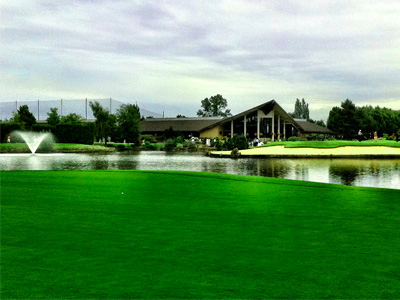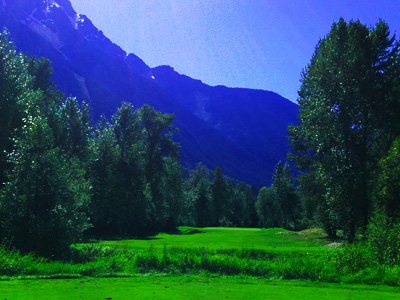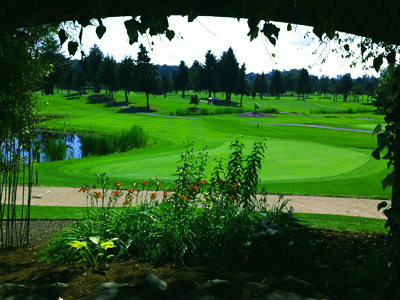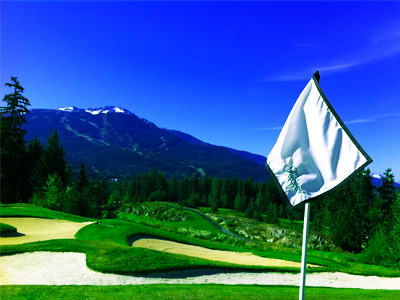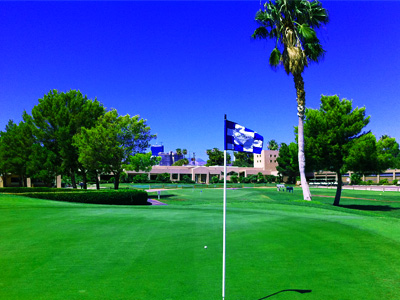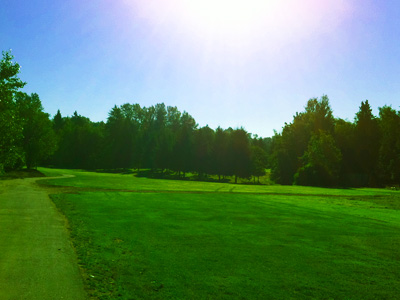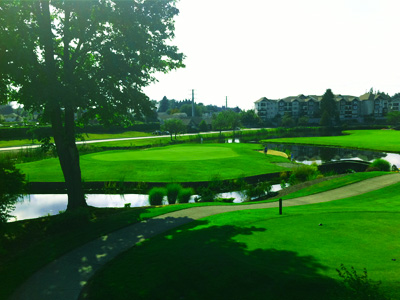Your browser does not support iframes.
CHASKA, Minn. — As Patrick Reed stood on the 18th green, reveling in his 1-up triumph over a gassed Rory McIlroy on Sunday at the Ryder Cup, he found himself in an awkward spot.
More than three minutes after his match ended, Reed was still holding on to his putter, his Hammer of Thor, one instrument of 14 that led him to 3.5 points that helped the United States to its first Ryder Cup victory in eight years. As he was about to start a string of TV interviews, Reed called out to captain Davis Love III. As Love came over, Reed lifted his putter in the air, parallel to the ground. Love cupped the blade with his hands, like he were being bequeathed Excalibur.
This is Patrick Reed’s Ryder Cup team now. It’s not as polished, as cool as the Europeans have made it look winning now eight of the last 11 biennial matches. It’s a little clunky, moving at right angles instead of fluid strokes. It’s a little awkward, with 12 individuals finding ways to come together as blood brothers for three days until the job is done.
However, it’s awfully effective.
Reed walked into the team room early in the week and announced he was playing all five sessions. That wasn’t a request. It wasn’t a demand. It was a statement. Vice-captain Tiger Woods had to lobby for Love to send out Reed and partner Jordan Spieth, the most successful duo in U.S. Ryder Cup history, for a fourth match on Saturday afternoon. And it’s a good thing Woods did. Reed made six birdies and an eagle while Spieth was little more than a ball gofer, playing well enough to have beaten their opponents Justin Rose and Henrik Stenson 2 and 1 by himself.
On Saturday night, captains Love and Darren Clarke gave the people what they wanted, blindly submitting singles lineups leading off with Reed and McIlroy. They did it for different reasons. Love did it hoping to break Europe’s back early with his stud. Clarke did it hoping McIlroy and the horses he rode for the first two days would string together points in a way that would breath life into the five players on his team that had accounted for no points in the first 16 matches.
Reed and McIlroy came to a head on the par-3 eighth. After McIlroy’s approach came up short on the multi-tier green, he drained a 60-foot birdie putt to the dismay of the American fans, some who rained down boos on the four-time major winner as he cupped his ears in a “Gladiator” taunt.
“I can’t hear you!” Rory roared back.
And then Reed, who thrives on sticking it to people who challenge and doubt him, stepped in to a 25-footer and matched it. The American roar in elation was tripled, and McIlroy may well have realized then that Reed was game. The pair had played the last four holes in a combined 9 under par, with just a single hole won.
Your browser does not support iframes.
From there, a slow detente began to take shape. The pair halved the ninth in bogey. They halved the 10th in par. It was almost as though both players had to take a break, knowing they couldn’t keep up their torrid pace.
Of the two of them, McIlroy went on ice and Reed hung on with par after par, winning the 12th to go 1 up. He nursed that lead until the par-5 16th, when, after McIlroy laid up following a poor drive, Reed went for the green in two. Maybe McIlroy laid up knowing Reed could go for the kill, hoping somewhere inside that Reed would find the same calamity in the water he did in his Saturday afternoon match. Reed instead found a greenside bunker. And with a foot of margin to play with, Reed executed, getting the up and down to beat McIlroy and go dormie.
Reed gave one back on No. 17 but rallied on the 18th, firing in his approach shot to six feet, just the size of a quarter farther from the hole than McIlroy. And with it all on the line, Reed drained the winning putt, turning to the cul-de-sac crowd around the ninth and 18th greens with a slew of fist pumps.
McIlroy shook Reed’s hand, congratulating him, probably knowing that the Europeans’ opportunity had passed. The red numbers on the scoreboard started to pile up, one after another, until Ryan Moore came to the 18th hole. He rallied back from 2 down against Lee Westwood with an eagle on 16 and a birdie on 17 to get back to square. And after Westwood failed to get up-and-down for par from the greenside bunker at 18, the last guy picked for this Ryder Cup squad clinched the victory for the U.S.
The winners’ reaction was somewhat muted. A lot of Americans probably imagined scenes reminiscent of the Miracle at Brookline in 1999 or the romp in Kentucky in 2008. After all, those were the only examples of American victory in the last quarter-century. However, as emotional as Reed had been, he wants more. He doesn’t want one win. He doesn’t want one good Sunday every two years. And that’s because he and the American team have bought into Phil Mickelson, Tiger Woods and their plan to lay a foundation to get the U.S. back to holding the Ryder Cup more often.
“We want to beat them at their best, they want to beat us at our best,” Reed said after his match.
This week, the U.S. finally figured out how to play their best. And it turned out to be better. On to Paris in 2018.
Ryan Ballengee is a Yahoo Sports contributor. Find him on
Facebook and Twitter.
Devil Ball Golf – Golf – Yahoo Sports
Other Related Posts:
Golf fans used to marvel at the fact that, at the age of just 21, Tiger Wo...
Ben Curtis wasn't at his best on Saturday, but on a day where only 19 play...
There are few female athletes in this world as recognizable as Serena Will...
Welcome to Devil Ball's Proving Ground, where we put the latest golf gear t...
Your browser does not support iframes. It’s become a thing. Each year — pra...



